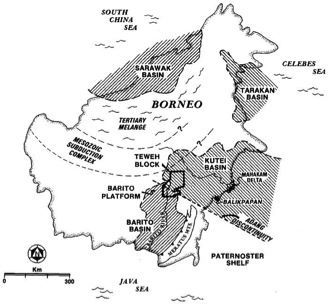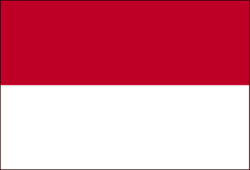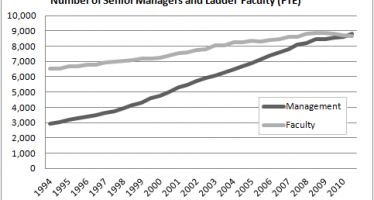Fracking watch: Indonesia figures out what CA hasn’t
May 8, 2013
By Chris Reed
Nations that are energy giants without being particularly affluent are the least likely places for environmental alarmism to drive public policy. They’re used to aggressively developing natural resources, and they don’t have the large cadres of affluent urban elites for whom environmentalism is a secular religion where faith trumps facts.
That definition very much fits Indonesia, the far-flung archipelago of islands in the southwest Pacific and the northeast Indian oceans. What most people know about Indonesia is limited to recalling that the president lived there as a child and what they remember about the 1965 Sukarno coup attempt from watching “The Year of Living Dangerously.” But besides being the fourth most populous country in the world (251 million people), Indonesia is the world’s largest exporter of coal by weight, the third-biggest exporter of liquefied natural gas and the eighth-biggest exporter of natural gas.
Fracking sanity chapter No. 12: Indonesia
 And so, of course, Indonesia and the international energy exploration firms it often partners with are moving aggressively into hydraulic fracturing, eager to join the fracking revolution. Huge shale reserves have been found on both Borneo (shown at right in a map from the American Association of Petroleum Geologists) and Sumatra, Indonesia’s two largest islands.
And so, of course, Indonesia and the international energy exploration firms it often partners with are moving aggressively into hydraulic fracturing, eager to join the fracking revolution. Huge shale reserves have been found on both Borneo (shown at right in a map from the American Association of Petroleum Geologists) and Sumatra, Indonesia’s two largest islands.
This is from an April 6 article on The Energy Collective website:
“A study by the Asia-Pacific Economic Cooperation, estimated that Indonesia has geologically attractive shale gas resources in the Barito and Kutei basins of Kalimantan [shown above] … .
“Edy Hermantoro, an upstream oil and gas director at the energy and mineral resources ministry of Indonesia said ‘Bandung Technology University estimates that Indonesia holds 1,000 tcf [trillion cubic feet] of shale gas reserves’.”
Trillions and trillions of cubic feet of natural gas
This is from a May 1 story on Upstream, an online trade publication of the oil and gas industry:
“Australia-listed NuEnergy Gas has started hydraulic fracturing operations at its Muara Enim production sharing contract in Indonesia, in a step to advance first gas sales by the end of this year.
“The company said on Wednesday that a fracking programme using radial jetting techniques had begun in five new untested coalbeds covering about 29 metres of gross pay.
“The programme is aiming to improve the production potential of the Suban coal seams, provide information for resource auditors to calculate reserves, and confirm the water and gas production characteristics across the full spread of coals underlying the PSC in Sumatra, Indonesia. …
“NuEnergy’s exploration programme is progressively proving and de-risking the South Sumatra CBM (coalbed methane) resource which is estimated by the Indonesian Government to be in excess of 180 Tcf (trillion cubic feet),’ [said NuEnergy chief executive Chris Newport].”
 The straightforward, mature Indonesian approach — study and confirm resources; evaluate opportunities and risks; establish relationships with firms with fracking expertise; start small but think big — boy, could we use that in California.
The straightforward, mature Indonesian approach — study and confirm resources; evaluate opportunities and risks; establish relationships with firms with fracking expertise; start small but think big — boy, could we use that in California.
Instead, an Assembly committee rushes to pass legislation that bans fracking based largely on the lie that it pollutes groundwater. Hydraulic fracturing occurs thousands of feet below the groundwater table. That is one of many reasons that the Obama administration has concluded it’s just another heavy industry that needs strong regulation, not the devil.
This lack of clear thinking is why I’ve undertaken my tour of fracking around the planet for CalWatchdog. My point: If California doesn’t exploit its huge energy reserves, that won’t stop the rest of the world from joining the brown energy revolution, leaving the Golden State at a huge competitive disadvantage and killing manufacturing as a noticeable source of jobs. The whining from greens in California and Europe can grow so loud that if deafens people, but it’s not going to derail the appeal of fracking in the places where people are geologically and economically literate and sensible.
It’s not just the Halliburton in-house newsletter that is speculating fossil fuels will be around forever because of fracking and other unconventional developments. It’s extremely respected journalists like The Atlantic’s Charles C. Mann.
Fracking watch: Previous posts
No. 1: Germany
No. 2: China
No. 3: Russia
No. 4: Saudi Arabia
No. 5: Brazil
No. 6: Canada
No. 7: Argentina
No. 8: Mexico
No. 9: South Africa
No. 10: Poland
No. 11: Algeria
Related Articles
How Gov. Brown could ace Napolitano on U.C. tuition
As Chris Reed noted last week, U.C. President Janet Napolitano has another thing coming if she thinks she can push a
Feinstein’s gun ban bill exempts govt. officials
Jan. 25, 2013 By Katy Grimes An interesting tidbit came out of Thursday’s big announcement by Sen. Dianne Feinstein about her
HBO’s “True Detective” mines CA politics for its plot
The second season of HBO’s highly popular “True Detective” series is set in a beat-up industrial Los Angeles County suburb




